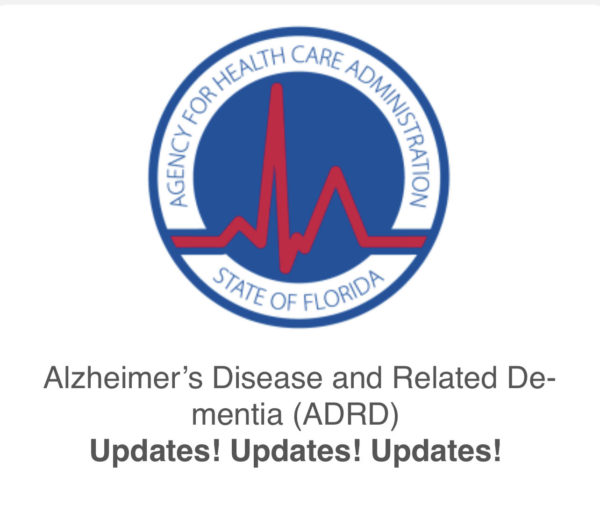
As of July 1, 2023, significant changes have been implemented in Florida’s assisted living facilities (ALFs) and adult family care homes (AFCHs) to enhance the quality of care for residents with Alzheimer’s disease and related dementias (ADRD). Chapter 430.5025, Florida Statutes has been established to lay down clear guidelines for ADRD training requirements for employees. These requirements aim to improve interactions with individuals suffering from ADRD and provide specialized care, ensuring their safety and wellbeing. In this blog post, we will outline the key provisions of these new regulations and their implications on the care provided in these facilities.
- Basic Written Information for New Employees
Upon commencing employment, every employee in ALFs and AFCHs will be provided with essential written information about interacting with residents who have ADRD. This initial step ensures that all staff members have a basic understanding of the challenges and best practices for providing care to individuals with memory impairments. By imparting this fundamental knowledge from the outset, the facilities can lay a strong foundation for person-centered care.
- 1-Hour Training Program by DOEA
Within the first 30 days of employment, employees who engage in personal care or have regular contact with residents must complete a 1-hour training program provided by the Department of Elderly Affairs (DOEA). This training is available online and comes at no cost to the employees or facilities. Its aim is to equip staff with the necessary skills to deliver specialized care for individuals with ADRD effectively.
The facility is required to maintain records of employees’ completion of the training program, and upon request, provide employees with copies of their completion records. This not only helps the employees keep track of their progress but also ensures that the facility remains compliant with the regulations.
- Additional 3-Hour Training Within 7 Months
Within seven months of starting employment, staff members responsible for personal care must complete an additional 3 hours of training. This training builds upon the foundational knowledge provided in the initial 1-hour program and delves deeper into effective caregiving techniques for individuals with ADRD.
- Additional 3-Hour Training Within 3 Months
Similarly, within three months of starting employment, employees who provide personal care or have regular contact with residents must complete another 3 hours of training. This additional training aims to reinforce the staff’s understanding of ADRD care practices and ensures they are well-prepared to handle the challenges that may arise.
- 4-Hour Dementia-Specific Training Within 6 Months
Within six months of commencing employment, employees who provide personal care must undergo an extra 4 hours of dementia-specific training. This specialized training hones their abilities to cater to the unique needs of residents with dementia, promoting compassionate and effective care.
- Ongoing Continuing Education
To ensure that the knowledge and skills of the staff remain up-to-date, each employee responsible for personal care must participate in at least 4 hours of continuing education every calendar year. This education can take various forms, including contact hours, on-the-job training, or electronic learning technology. On-the-job training, conducted by experienced facility administrators or their designees, provides direct coaching and guidance to improve employees’ skills in caring for residents with ADRD.
- Pre-Service Orientation Requirement
Employees who have completed the 1-hour training required by Chapter 430.5025 before interacting with residents can count this training towards their 2 hours of pre-service orientation requirement. This acknowledges the importance of prior knowledge and experience and streamlines the training process for experienced staff members.
- Deadline for Training Completion
All individuals employed, contracted, or referred to provide services in ALFs or AFCHs must complete the required ADRD training outlined above by July 1, 2026. This ensures that all staff members have undergone the necessary training to provide the best possible care for residents with ADRD.
Florida’s commitment to improving care for residents with Alzheimer’s disease and related dementias in assisted living facilities and adult family care homes is evident through the comprehensive training requirements outlined in Chapter 430.5025. By providing employees with the knowledge and skills to deliver person-centered care, the state aims to create a safer, more supportive environment for residents with ADRD. These new regulations underscore the importance of continuous learning and development in the field of dementia care, ensuring that staff members remain well-equipped to meet the evolving needs of those they serve. Through these efforts, Florida takes a significant step towards improving the lives of individuals living with ADRD and promoting compassionate, high-quality care in ALFs and AFCHs.